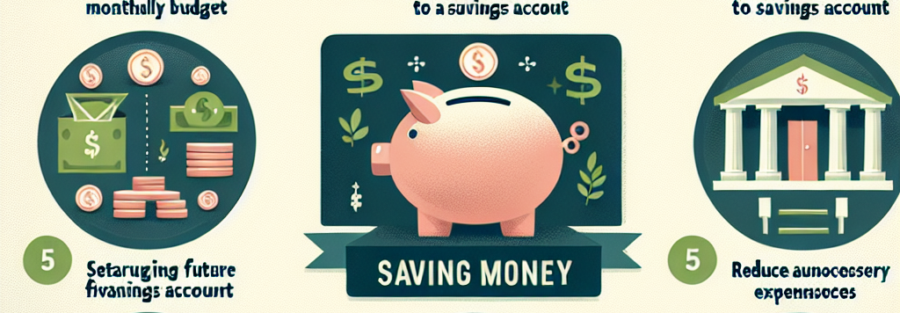In today’s fast-paced world, financial security has become more important than ever. With rising costs and unpredictable economic conditions, it is crucial to adopt effective money-saving strategies. This article presents ten essential tips aimed at helping you save money and secure your future. By implementing these practical strategies and building a strong financial foundation, you can pave the way for long-term stability and peace of mind.
Practical Money-Saving Strategies for Financial Security
One of the most effective ways to save money is by creating and adhering to a strict budget. Start by tracking your income and expenses for at least a month to identify patterns and areas where you can cut back. Use budget-tracking apps or spreadsheets to categorize your spending, and allocate fixed amounts for essentials like housing, groceries, and transportation. By setting clear limits, you can curtail unnecessary expenditures and funnel those savings into your future investments.
Another crucial strategy is to reduce discretionary spending. This involves evaluating your lifestyle choices and identifying non-essential expenses that can be trimmed or eliminated. For instance, consider dining out less frequently, canceling unused subscriptions, or opting for DIY projects instead of professional services. Small changes can accumulate over time, leading to significant savings. The key is to find a balance that allows you to enjoy life while still prioritizing your financial goals.
Finally, take advantage of discounts, cashback programs, and loyalty rewards. Many retailers and service providers offer discounts through apps or loyalty programs that can help you save on everyday purchases. Consider using cashback credit cards wisely, ensuring that you pay off the balance in full each month to avoid interest charges. By being strategic about your spending habits and utilizing available rewards, you can maximize your savings without compromising on quality of life.
Building a Solid Foundation for Your Financial Future
Establishing an emergency fund is one of the first steps you should take toward securing your financial future. Aim to save three to six months’ worth of living expenses in a separate, accessible savings account. This fund acts as a financial buffer during unexpected situations, such as job loss or medical emergencies, allowing you to navigate challenges without resorting to credit cards or loans. Begin by setting aside a portion of your income each month until you reach your savings goal.
Next, consider investing in your retirement. Starting early is crucial, as compound interest can significantly boost your savings over time. Contribute to employer-sponsored retirement accounts, such as a 401(k), especially if your employer offers matching contributions. Additionally, consider opening an Individual Retirement Account (IRA) to take advantage of tax benefits. The earlier you start saving for retirement, the more secure your financial future becomes, allowing you to enjoy your golden years without financial stress.
Lastly, educate yourself about personal finance and investment strategies. Understanding the basics of budgeting, saving, and investing is essential for making informed decisions about your money. Attend workshops, read books, or follow reputable financial blogs to enhance your knowledge. By staying informed, you will be better equipped to navigate the complexities of personal finance and make strategic decisions that align with your long-term financial goals.
Saving money and securing your future requires intentional actions and smart decisions. By implementing practical money-saving strategies and building a solid financial foundation, you can achieve greater financial stability and peace of mind. Whether it’s creating a budget, reducing unnecessary expenses, or investing wisely for retirement, every small step can lead to significant progress over time. Start today, and take control of your financial future for a more secure tomorrow.



